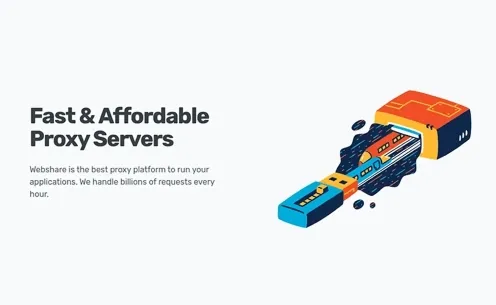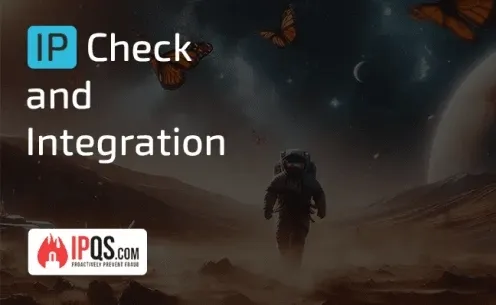
Facebook account suspensions: why they happen and how to avoid them in 2025
Facebook bans don’t just target rule-breakers. Many accounts get restricted for patterns they didn’t even notice: IP changes, fast actions, flagged tools. This guide breaks down how bans happen, what they mean, and how to prevent them before they start.
What Is a Facebook Ban and How It Works
Bans don’t just happen for breaking the rules. Facebook monitors patterns: logins, behavior, signals. If the system senses “risk,” you’re out. Fast and often without warning, even if you did nothing wrong.
Temporary vs. Permanent Ban
Temporary bans usually last from 24 hours up to 30 days. During this period, some actions like posting, messaging, or launching ads may be restricted. You’ll typically receive a notice with the blocked feature. Once the restriction ends, access is restored automatically.
Permanent bans are irreversible. They lock you out of your profile, ad accounts, Pages, and connected assets. These bans often follow repeated violations, automated flags, or major breaches of platform policies. If you don’t appeal within the system’s window, recovery becomes impossible.
Manual vs. Automated Review
Most bans start with automation. Facebook uses algorithms and AI to detect abnormal patterns: mass friend requests, fake profiles, flagged content. If the system sees something risky, it can block or disable an account instantly. Human moderators only step in if you submit an appeal or if a case is borderline. Even then, reviews are often brief. In high-volume situations, you may never speak to a real person. That’s why false positives happen so frequently, because the system acts first, asks questions later. If you’re banned unfairly, the appeal process is your only chance to trigger manual review and potential reinstatement.
Shadowban: Myth or Reality?
They are real but not in the way people think. Facebook rarely uses the term “shadowban,” but the symptoms are familiar: your posts stop getting reach, ads underperform, engagement plummets. Unlike full bans, you’re still logged in, but your visibility is quietly throttled.
This often follows posting borderline content or triggering trust-based signals like suspicious logins or automation traces. There’s no warning. You just see your metrics drop, often after small infractions. One marketer described it as “posting into a black hole.” Others found that even normal content, when published too aggressively or too often, led to organic reach collapse.
Shadowbans aren’t officially acknowledged, but experienced users and data show clear signs: ad CPMs spike, comment replies vanish, post visibility nosedives. It’s not a glitch. Facebook’s algorithmic trust scoring silently deprioritizes accounts that appear risky, unverified, or hyperactive.
Common Reasons Why Facebook Bans Accounts
Facebook doesn’t rely on content alone to flag violations. Its systems monitor everything from how fast you add friends to the devices you use to log in. Most bans follow patterns, not intentions. Recognizing those patterns can help you avoid a facebook account suspended notice, silent penalties, sudden lockouts, or even full loss of access.
Suspicious Login Behavior (Frequent IP/Device Switching)
The platform constantly monitors login patterns. Switching between IPs, devices, or countries too often triggers internal risk scores. Accounts that appear unstable like logging in from New York, then Singapore, then a proxy are often locked for “security concerns,” even if you’re the rightful owner using common tools like VPNs.
Spammy or Automated Activity
Unusual activity bursts catch the system’s attention fast. Posting the same link in ten groups, liking hundreds of posts, or dropping generic comments everywhere mimics bot behavior. Even without automation, such patterns can flag your account as high-risk, limiting your reach or triggering instant enforcement actions.
Facebook’s systems look for velocity and uniformity. If your interactions happen too fast, follow a script, or repeat across sessions, it resembles automation. Even real users copying and pasting comments, or using browser extensions for bulk actions, can trip risk signals. Accounts flagged this way often experience sudden visibility drops, failed ad deliveries, or soft restrictions like blocked likes or shares, without clear notice.
Using Fake Personal Info or Fake Names
Accounts with inconsistent names, birthdays, or profile details often don’t last. Meta’s systems scan for signs of fakes, especially if multiple accounts share similar data. Even innocent mistakes, like using a nickname instead of your legal name, can lead to removal if the system flags your profile as inauthentic.
Violating Community Standards or Ad Policies
Facebook enforces its Community Standards to maintain a safe environment. Common violations include hate speech, harassment, nudity, and misinformation. Even unintentional infractions can lead to penalties. Understanding these standards is crucial to avoid issues and maintain account integrity.
Adherence to Facebook's Ad Policies is equally important. Prohibited content includes illegal products, misleading claims, and discriminatory practices. Ads must be truthful, appropriate, and comply with platform guidelines. Regularly reviewing these policies helps ensure your advertising efforts remain compliant and effective.
If your account faces restrictions, knowing how to get unbanned from facebook is essential. Begin by identifying the specific violation, then follow Facebook's appeal process, providing necessary documentation and explanations. Taking corrective actions and demonstrating compliance can increase the likelihood of reinstating your account.
Too Many Friend Requests or Messages in a Short Time
Mass outreach feels unnatural. Sending 50 friend requests in an hour or messaging too many users without response looks suspicious to Facebook’s systems. This type of activity often triggers soft bans or checkpoints. Slowing down, pacing interactions, and letting connections grow organically can help keep your account safe.
Business Manager (BM) Account Risks
BM accounts link multiple assets: profiles, pages and ad accounts. When one asset gets flagged, Facebook doesn’t check it in isolation, everything connected gets reviewed. That includes admins, payment methods, past violations, even linked domains. A poor-quality campaign or policy strike on one account can lower the trust level of the entire BM setup. Sometimes, a disabled ad account causes ripple bans across assets you didn’t expect. Managing a BM means tracking every detail closely: ad performance, business verification, roles, permissions, and appeal history. The system reads patterns so one mistake can quietly affect the whole network.
What to Do If You’ve Been Banned From Facebook
A Facebook ban doesn’t always mean it’s over. Whether it’s a login checkpoint, full disablement, or a shadow restriction, knowing the right steps can make the difference. This section breaks down how to file appeals, what documents to prepare, and how to avoid mistakes that make recovery harder.
Steps to Take for Temporary Bans
Temporary bans usually expire on their own, but don’t ignore them. If you’ve dealt with a facebook banned account before, you know this is the time to secure your setup, review recent activity, and double-check associated devices. Clear cookies, change your password, and avoid logging in from unfamiliar networks or shared devices. It’s also smart to check your trusted contacts and remove any suspicious browser sessions. Treat it as a clear warning - future violations could escalate to permanent restrictions, loss of business access, or even full deactivation. Taking preventive steps now builds trust signals and lowers the chance of getting flagged again later.
Request a Review
Go to the Facebook Help Center and navigate to “Account Status” or “Account Quality.” There, you can often request a manual review. Keep your tone neutral and professional. If available, include context, like recent ad changes or login issues. Submitting early increases your chances of human attention before the ban locks in.
Submit an Appeal
Use the appeal form only once per case. Select the most accurate category (e.g. “My personal account was disabled”) and attach requested documents. Make sure your name matches what’s shown on your account. Don’t resend multiple appeals, it’s flagged as spam. Be concise, factual, and avoid emotional or aggressive language.
Check Support Inbox
Your Support Inbox is where Facebook replies to most appeal outcomes or requests for further verification. Check it daily, even if you didn’t get an email. Sometimes a response includes a short deadline to upload documents. Miss that, and your case might close without review. Always respond directly through the inbox thread.
Dealing With a Permanent Ban
A permanently banned from Facebook status usually means full account loss - no login, no ad access, no Pages. Facebook won’t explain why, it flags behavior, not intent. If your setup looks risky and includes shared devices, bots, mismatched logins, the system can shut things down without notice.
What you do next matters. Avoid logging in from other accounts or devices too soon. Don’t reuse ads, cards, or domains tied to the banned profile. These patterns link accounts together. Once connected, a new ban can happen fast, often with no second chance.
If recovery fails, it’s smarter to start fresh. Use a clean setup with a stable IP, matching timezone, and realistic browser fingerprint. Tools like Linken Sphere help create that safe environment. With time and steady behavior, you can rebuild trust and stay off the radar.
Can You Recover Your Account?
Meta sometimes allows recovery, but only if your identity and activity history show clear, low-risk patterns. That includes stable logins, consistent devices, and verified payment details. But if the ban was triggered by mass automation tools or conflicting browser fingerprints, basic appeals usually won’t work. Instead, you’ll need to reset your setup completely. This means switching to a clean browser environment, avoiding reused user agents or proxies, and letting a stable login pattern rebuild trust. Meta tracks how behavior changes over time, so the more consistent and real your signals look, the higher your chances of being reinstated.
When It’s Better to Start Over
If your profile triggers “behavioral clustering” (e.g. matched to flagged devices, proxies, or overlapping payment methods), you’re unlikely to get it back. In that case, starting fresh in a controlled environment like Linken Sphere makes more sense. It lets you isolate device fingerprints and build new, consistent usage patterns.
What Not to Do After Getting Banned
Don’t rush to log in from new devices or accounts cause Facebook may link them instantly through fingerprinting. Avoid mass-appeal submissions or changing your ID. Never reuse ad creatives, business details, or payment methods tied to the banned profile. These actions often follow a facebook account suspended for no reason scenario and increase the chance of future blocks, making recovery much harder.
How to Avoid Getting Banned From Facebook in the Future
Accounts get banned when behavior breaks Meta’s internal patterns: too fast, too clean, too scripted. Set up full fingerprints: OS, timezone, fonts. Keep login geolocation stable. Use cookies. Human activity means scrolls, pauses, edits. Avoid blank slates. Aged profiles with realistic delays and native interaction survive longer under automated review.
Use Realistic Account Behavior
Facebook tracks behavior patterns, not just content. Repeating the same actions as fast clicks, identical comments, or scripted navigation, can look like automation. Real users scroll, pause, change pace. Mixing up your interactions helps signal that a real person is behind the screen.
Avoid Sudden IP or Device Changes
If you open Facebook from a home laptop, then log in an hour later from a datacenter IP on a clean device, it won’t look human. Facebook tracks patterns like connection type, browser version, and timezone. Stick to one environment or change gradually, like a real person would when traveling.
Respect Facebook’s Ad and Content Policies
Facebook's ad policies prohibit content that includes misleading claims, sensationalism, or promotion of prohibited products like weapons, tobacco, and unapproved supplements. Ads must be truthful, non-discriminatory, and comply with local laws. Violations can lead to ad disapproval or account suspension.
Don’t Use Bots or Automation Tools
Automation leaves a pattern Facebook can easily spot: identical timing, missing scrolls, no cursor activity. Even small scripts or browser extensions can expose you. Instead of scaling with shady tools, rely on approved business solutions. Organic-looking behavior like pauses, edits, real navigation all this keeps your account under the radar.
Warm-up New Accounts Gradually
New accounts that start running ads or sending friend requests right away look suspicious. Facebook expects slow, steady growth: profile photo, basic info, a few group joins, casual scrolling. Let cookies build up. Post something real. Engage with a few posts, react naturally, avoid copy-pasting. Give the system time to “believe” you’re a person. Sudden activity spikes or template-like behavior often trigger soft blocks or slowdowns without any warning.
Avoid Flagged Links or Content
Facebook remembers everything. If your link ever showed misleading content or was shared from a banned ad, it’s already marked. Even tiny changes won’t help. Don’t recycle domains or borrow “working” funnels from others. Stick to fresh, clean URLs, and always preview your post before publishing. One bad link can cost you.
Advanced Protection: Using Linken Sphere to Stay Safe
You don’t need to outsmart Facebook, but to stop standing out. Linken Sphere is an Antidetect Browser that gives you tools to act like a seasoned local, not a tourist with ten phones. Custom fingerprints, stable environments, quiet routines. No flags, no noise. Just clean sessions that feel lived-in from the first click.
What Is Linken Sphere and How It Helps
Linken Sphere is designed for managing multiple accounts across platforms and it’s especially effective with Facebook. Each session runs in a fully isolated environment with its own browser fingerprint: timezone, fonts, hardware, language, WebGL, and more. No overlaps, no leaks, no reused data.
That’s why marketers, affiliate teams, and arbitrage specialists use it to create stable, long-living accounts. You can assign proxies, simulate human behavior, and build clean profiles that look native to Facebook’s systems. It’s about blending in. And when your revenue depends on account health, that’s what keeps the engine running.
How It Masks Fingerprints and IP Data
Linken Sphere builds each browser session with its own isolated configuration. Every detail like device ID, WebGL hash, Canvas signature, audio stack, timezone, language, fonts all is generated or customized to look natural for the assigned proxy.
The browser doesn’t store shared cookies or cache across profiles. Each session behaves like a separate user on a separate machine. Combined with proxy rotation and custom headers, this creates a stable fingerprint for every account. Facebook and other platforms detect no technical link between profiles. That’s how Linken Sphere keeps setups clean, persistent, and ready for long-term use.
Benefits for Facebook Marketers and Multi-Accounters
Linken Sphere gives Facebook marketers what they actually need: clean profiles, stable logins, and zero account linkage. Each session runs in its own fingerprinted container with saved cookies, history, and 2FA. You can launch, warm up, scale, and hand off accounts across your team, all without red flags. It’s built for multi-account workflows where stealth, speed, and control matter every day.
Recommended Settings for Facebook Safety
Start by setting up a realistic mobile fingerprint in Linken Sphere: choose an Android environment, match the GPU and audio stack to common device specs, and avoid any signs of automation. Your IP should align with the selected timezone and browser language. Then activate WebRTC and geolocation so they reflect the same region.
Once the fingerprint is ready, create a separate session for each Facebook account. Let the system store cookies and login history to build consistent activity over time. Set up two-factor authentication manually inside the profile. With Linken Sphere, this process keeps each identity isolated and helps you bypass Facebook’s risk detection logic.
Conclusion: Stay Ahead of Bans With Smart Tools and Practices
Getting hit with an fb ban is often about how your account looks from the inside. Sudden IP switches, mismatched fingerprints, reused device setups, or behavior that doesn’t match your profile history can all trigger automated reviews. For businesses or marketers managing multiple accounts, one wrong move can lock out ad spend, data, or access entirely.
Linken Sphere helps prevent this. It lets you create clean, realistic browser environments with isolated sessions, real device fingerprints, and region-matching network settings. Used right, it keeps your activity consistent, your profiles separate, and your operation invisible to Facebook’s risk systems.
Frequently Asked Questions
Can I Use the Same Phone Number on Two Accounts?
Technically yes, but it’s risky. Facebook flags repeated phone numbers across accounts, especially if they’re tied to ad activity or frequent logins. To stay safe, use separate verified numbers. Virtual numbers from trusted providers can work, but avoid free or low-reputation services.
Will Facebook Detect My Proxy or VPN?
Yes, Facebook will likely catch it if your proxy or VPN is shared, flagged or mismatched with your browser settings. Data Center IPs are especially risky. Using residential or mobile proxies with the correct time zone, language and fingerprint alignment can reduce the risk of detection. Tools like Linken Sphere can help you to manage this correctly. Data Center IPs are especially risky. Residential or mobile proxies with the correct time zone, language and fingerprint settings reduce the risk of detection.
Is It Safe to Buy Facebook Accounts?
Only if you know exactly what you’re buying. Most bought accounts fail due to poor warm-up, mismatched environment, or reused cookies. Always use a clean, isolated browser profile and gradual activity to avoid bans. Don’t skip proper fingerprint, timezone, and IP matching.
Can I Appeal a Permanent Ban?
Yes, but success depends on the reason and account history. Understanding the Facebook ban reasons that triggered the block helps you frame a better appeal. If your appeal includes accurate documents and is submitted from a matching device and location, chances improve.

Using LS with OBS Studio
This is a comprehensive guide that will help you implement video stream substitution in Linken Sphere without the risk of detection by anti-fraud systems.

Integration guide: Webshare + Linken Sphere
In today's digital landscape, maintaining privacy and anonymity online is more important than ever. Using an anti-detect browser like Linken Sphere is a powerful step towards safeguarding your digital identity. However, to maximize its effectiveness, pairing it with high-quality proxies is crucial. In this article, we'll explore what proxies are, the benefits of using them with an anti-detect browser, and why Webshare proxies stand out as an excellent choice. Additionally, we'll provide a guide to integrating Webshare proxies with Linken Sphere to ensure seamless browsing and enhanced security.

How does IP Quality Score work and its integration into Linken Sphere
IP Quality Score (IPQS) is a metric or rating system that determines the quality and reputation of an IP address. These scores can be used for risk analysis, filtering out malicious actors, fraud prevention, or traffic analysis.